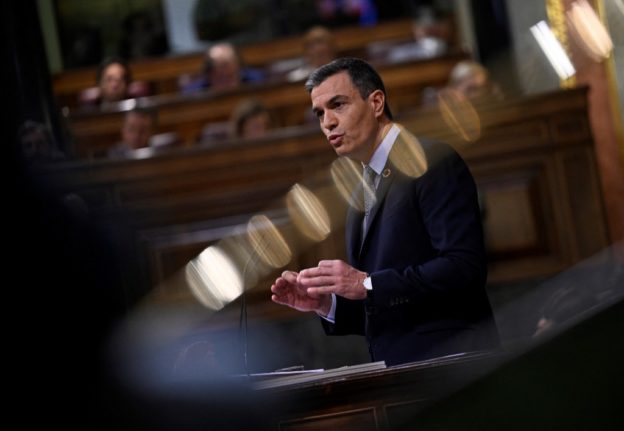The new taxes should generate around 7.0 billion euros ($7.0 billion) in revenues in 2023 and 2024, Socialist Prime Minister Pedro Sanchez told parliament in a state of the nation speech.
They will include a tax on windfall profits of big energy firms, which will generate around 2.0 billion euros per year for state coffers, he said.
A tax on lenders, “who have started to benefit from higher interest rates”, will bring in 1.5 billion euros per year, he added.
The profits generated by rising prices “must be returned to citizens” instead of “fattening” the “salaries of big business leaders,” Sanchez said.
“This government will not tolerate that companies profit from the crisis to enrich themselves,” he added.
Countries around the world are experiencing decades-high inflation as the Ukraine conflict pushes up energy and food prices.
Spain’s inflation rate hit 10.2 percent in June, its highest level in 37 years.
Sanchez’s government has rolled out a swathe of measures to help consumers, including a subsidy on fuel prices at the pump, direct grants to truck drivers and financial support for some farmers.
Several other European nations which have imposed temporary taxes on large firms recently to help cover the cost of measures to tackle the fallout from rocketing inflation.
Britain, for example, introduced in May an exceptional levy on soaring profits enjoyed by the likes of BP and Shell that have benefited massively from surging oil and gas prices.
Sanchez’s announcement sent the Madrid-listed shares of Spain’s biggest banks, including Santander, and its large energy firms like Repsol sharply lower.
He also unveiled several new measures, including free travel on commuter trains between September and December and an increase in monthly scholarship payments to students.
Sanchez’s Socialists were thrashed last month in a regional election in Andalusia, a long-time party stronghold.
The vote was won by Spain’s main opposition conservative Popular Party, which currently tops national opinion polls ahead of a general election expected at the end of 2023.



 Please whitelist us to continue reading.
Please whitelist us to continue reading.
Member comments